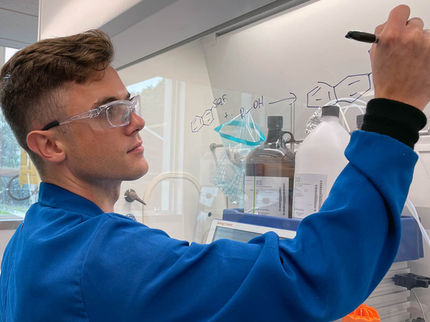Precise control of catalytic reactions
“Using this nanoreactor, it is possible to synthesize complex drugs that could not be synthesized inside the body until now”
Advertisement
Various chemical reactions occur one after another in cells, and life is maintained as each step of the reaction is regulated without error. Recently, a Korean research team has developed a dual-catalyst system that can precisely control catalytic reactions like cells.
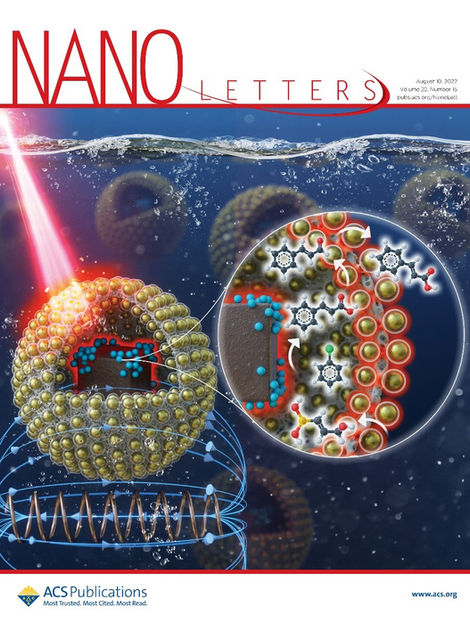
Study was published as the supplementary cover in Nano Letters
POSTECH
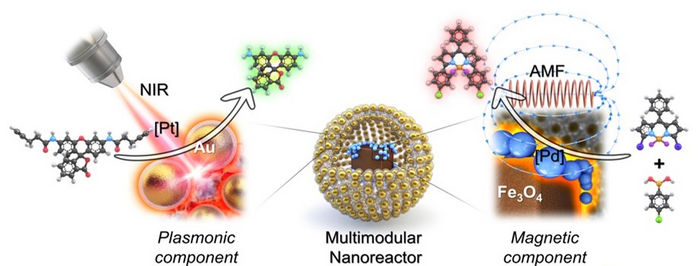
Schematic diagram of the magnetic-plasmonic catalytic multimodular nanoreactor
POSTECH
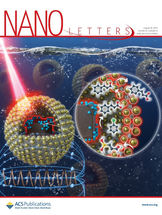
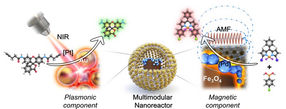
A POSTECH research team led by professor In Su Lee, research assistant professors Amit Kumar and Nitee Kumari, and master’s student Jongwon Lim (Department of Chemistry) developed a nanoreactor that combines magnetic materials and metal catalysts.
A nanoreactor combining two or more catalysts causes a continuous catalytic reaction to help synthesize precise chemicals. However, each step in the synthesis is influenced by each other owing to a wide range of temperatures and pressures, making it extremely challenging to control the reaction steps or suppress side reactions.
To overcome this, the research team developed a magnetic-plasmonic multimodular nanoreactor consisting of a magnetic core-shell and a plasmon yolk-shell. A magnetic material at the center of the nanoreactor and a plasmon shell at the edge selectively activate the catalyst under the influence of magnetic fields and near-infrared rays, respectively. As a result, the platform can selectively generate thermal energy without applying external heat. Additionally, the nanoreactor does not harm living things or cause side reactions by minimizing the interference from various catalysts.
As a result of remotely controlling the nanoreactor using magnetic fields and near-infrared rays, the platform produced high value-added cinnamaldehyde (ca. 95%) through a one-pot continuous reaction from simple precursors.
“Using this nanoreactor, it is possible to synthesize complex drugs that could not be synthesized inside the body until now,” explained Professor In Su Lee. “Furthermore, the technology is expected to applicable to the field of theranostics, which diagnoses and treats diseases at the same time.”



